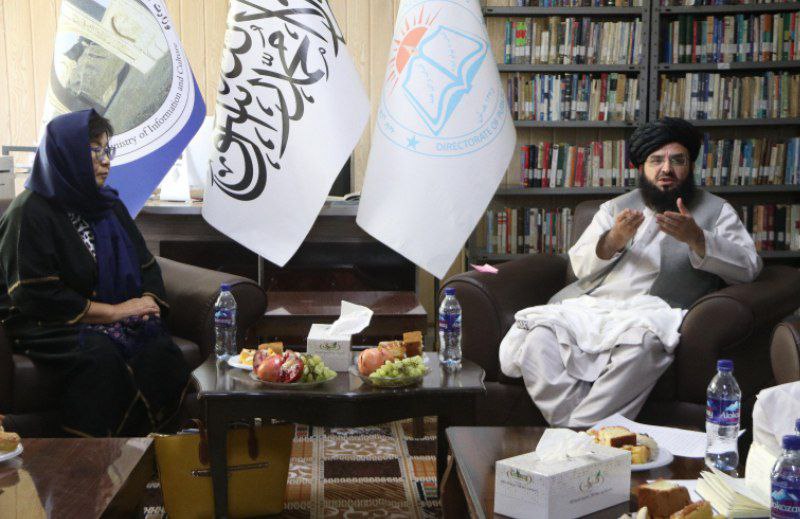KABUL, Afghanistan — More than five million children in Afghanistan are currently deprived of access to education, in addition to facing a severe shortage of humanitarian aid, according to Roza Otunbayeva, the head of the United Nations Assistance Mission in Afghanistan (UNAMA).
Otunbayeva raised these concerns during a meeting with senior Taliban officials in Kabul.
The Taliban-controlled Ministry of Information and Culture issued a statement on Sunday detailing Otunbayeva’s meeting with Atiqullah Azizi, the ministry’s deputy. According to the statement, the UN official emphasized the importance of literacy and announced plans for a “national campaign” to promote reading across the country.
Afghanistan’s educational crisis has worsened under the Taliban regime, with girls above the sixth grade banned from attending school for over three years. The ban continues to draw widespread condemnation from the international community.
The meeting, which also included representatives from the European Union, UNICEF, and UNESCO, addressed the broader challenges facing education and cultural preservation in Afghanistan. Azizi called on the United Nations to assist the Taliban in building public libraries, expanding mobile libraries, developing digital systems, and training staff to manage Afghanistan’s historical artifacts.
Azizi also claimed that public libraries had been neglected during the past two decades, urging for more international support in this area.
In addition to the educational challenges, the discussions also touched on the illicit trafficking of Afghanistan’s cultural heritage and the issue of illegal excavations at the country’s numerous archaeological sites.
According to the statement, Taliban have expressed concerns about the protection of historical artifacts and sought international cooperation in preventing their loss.





